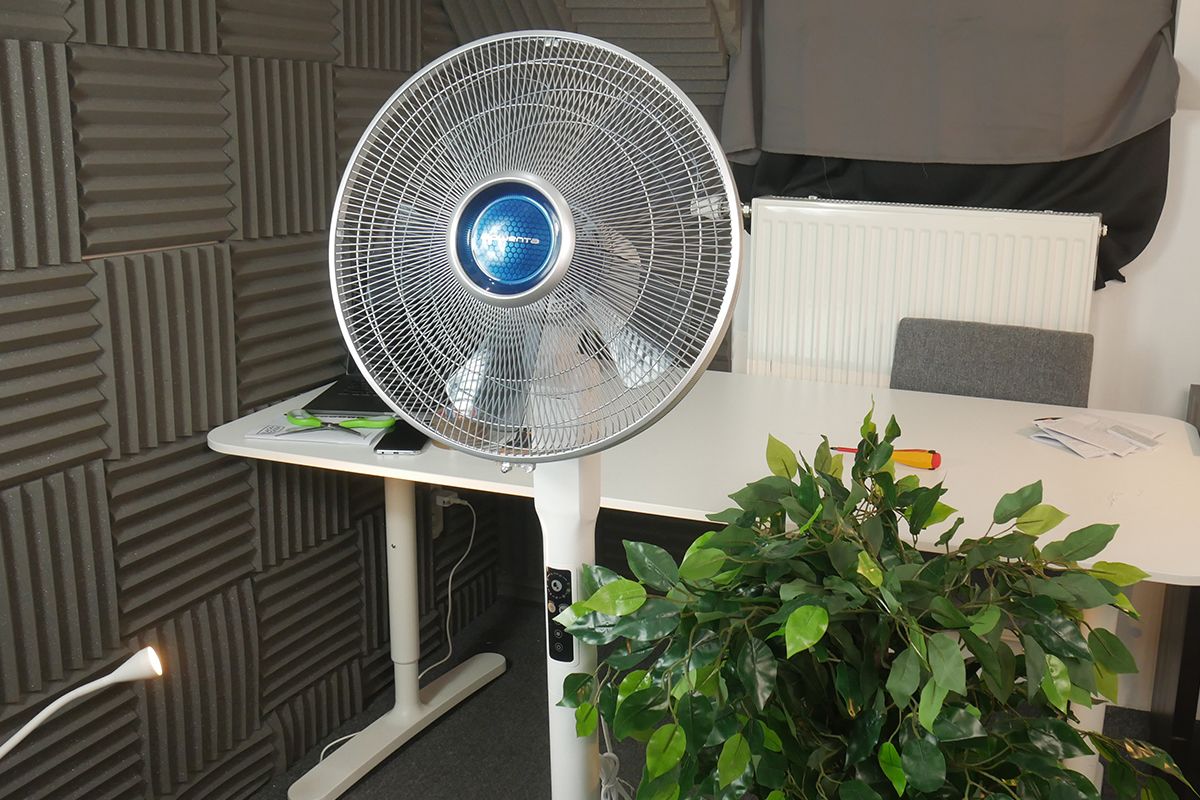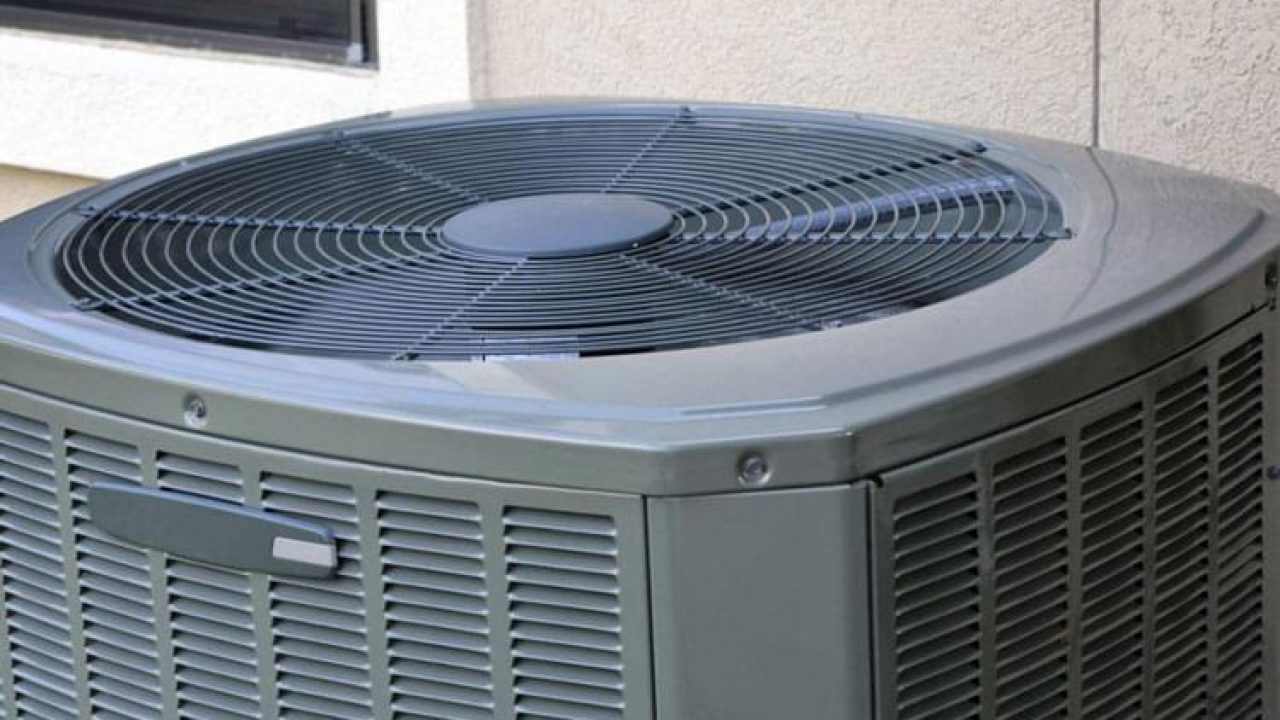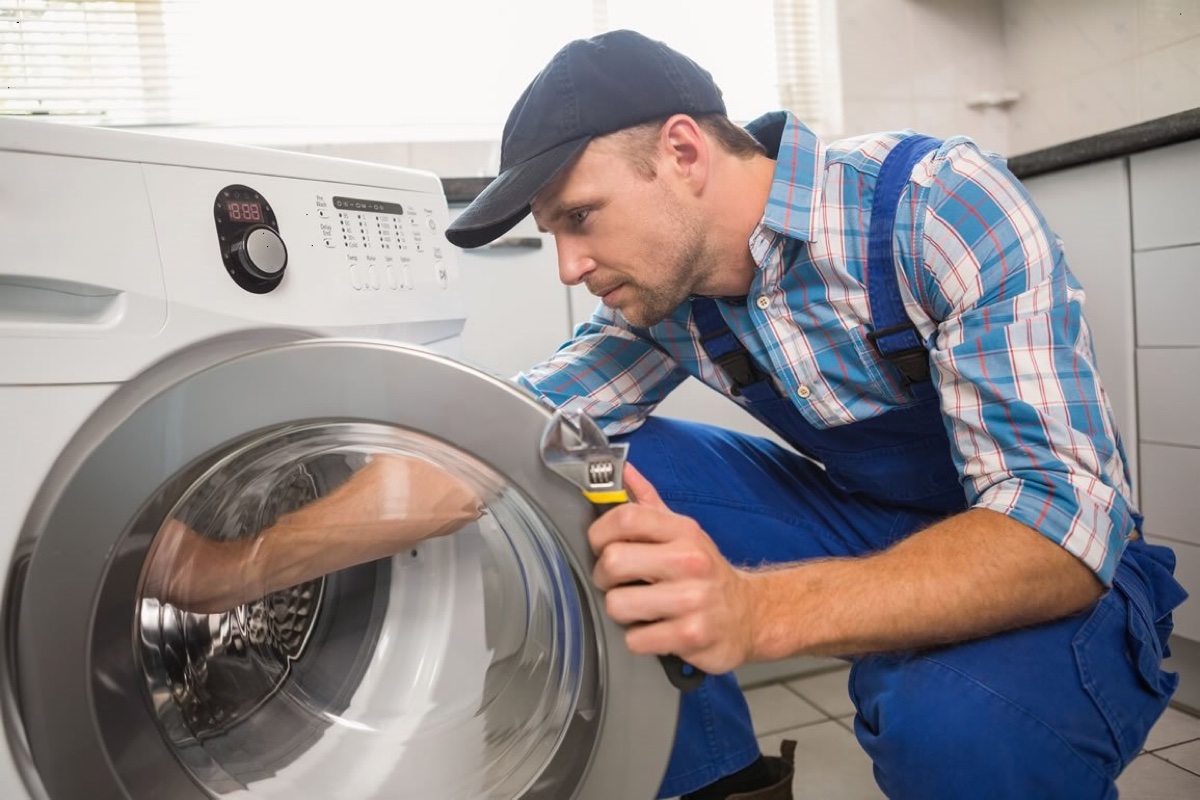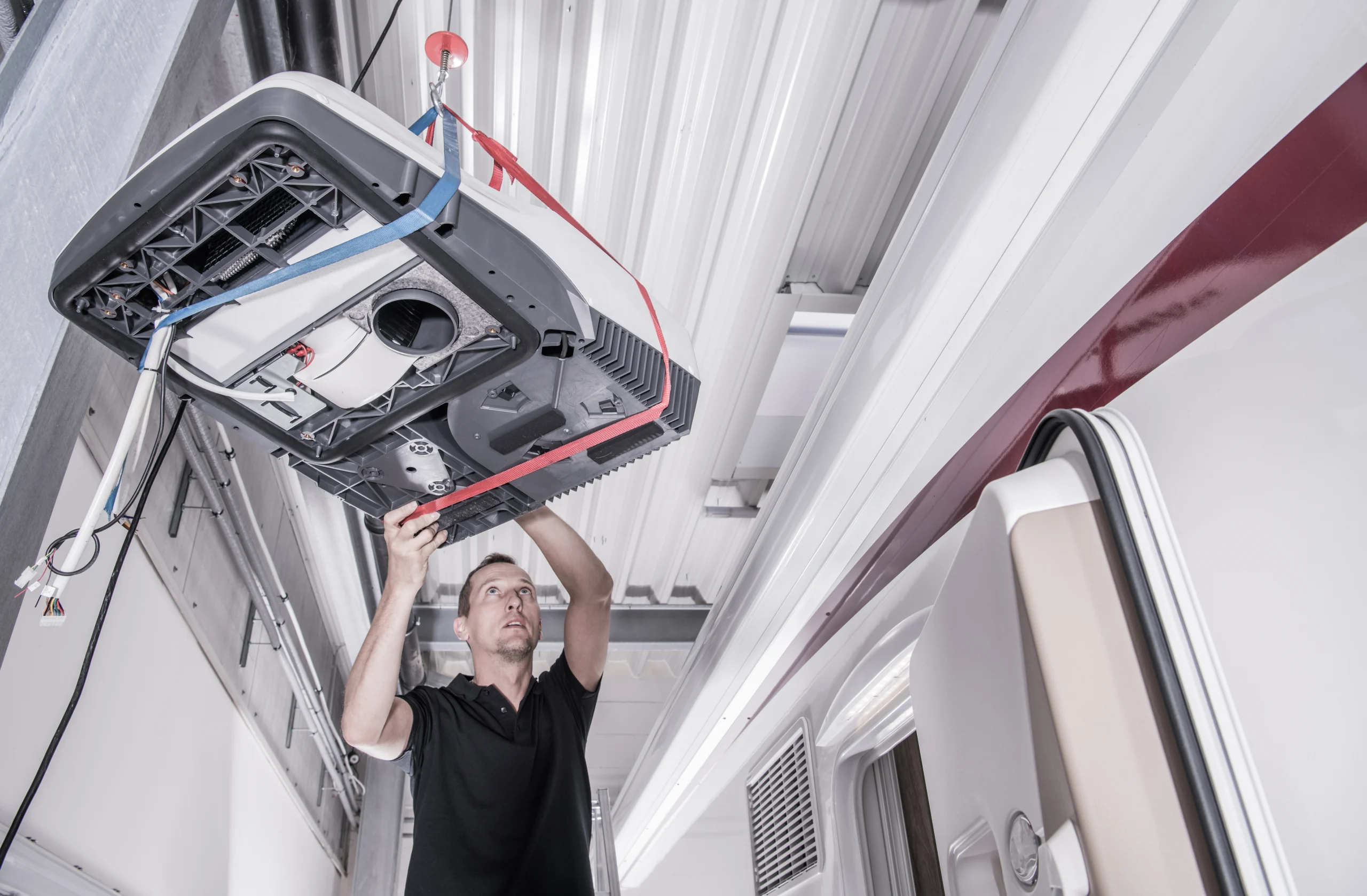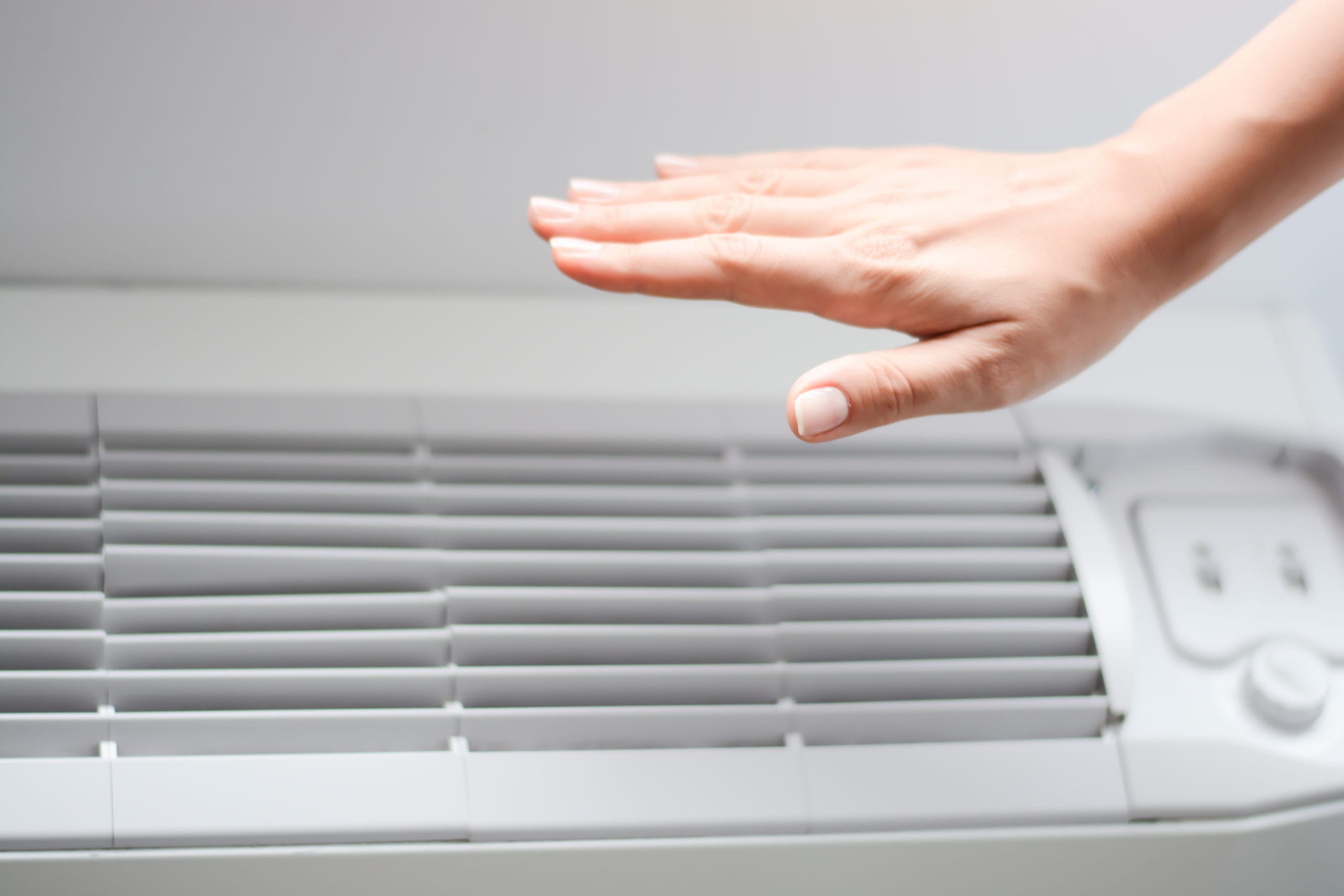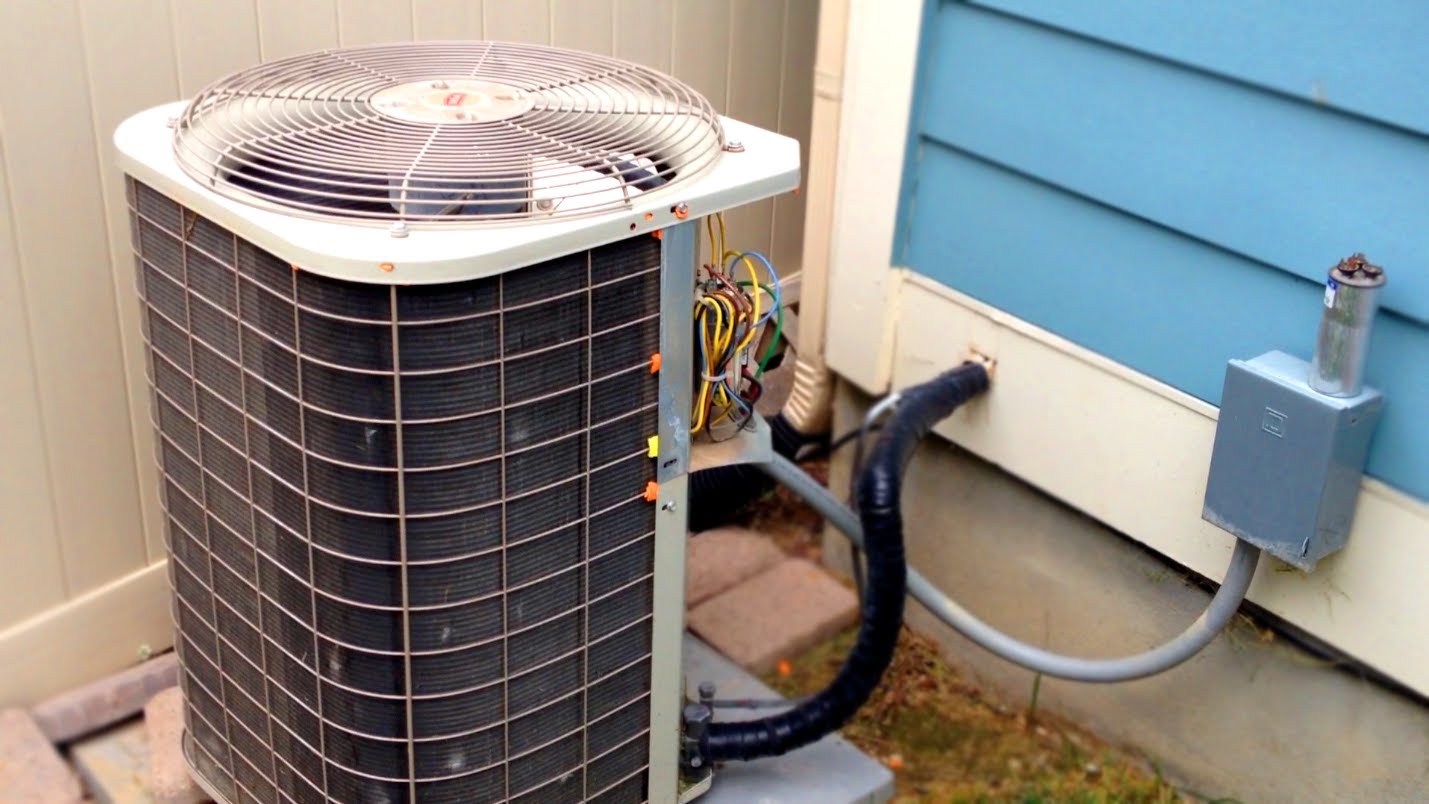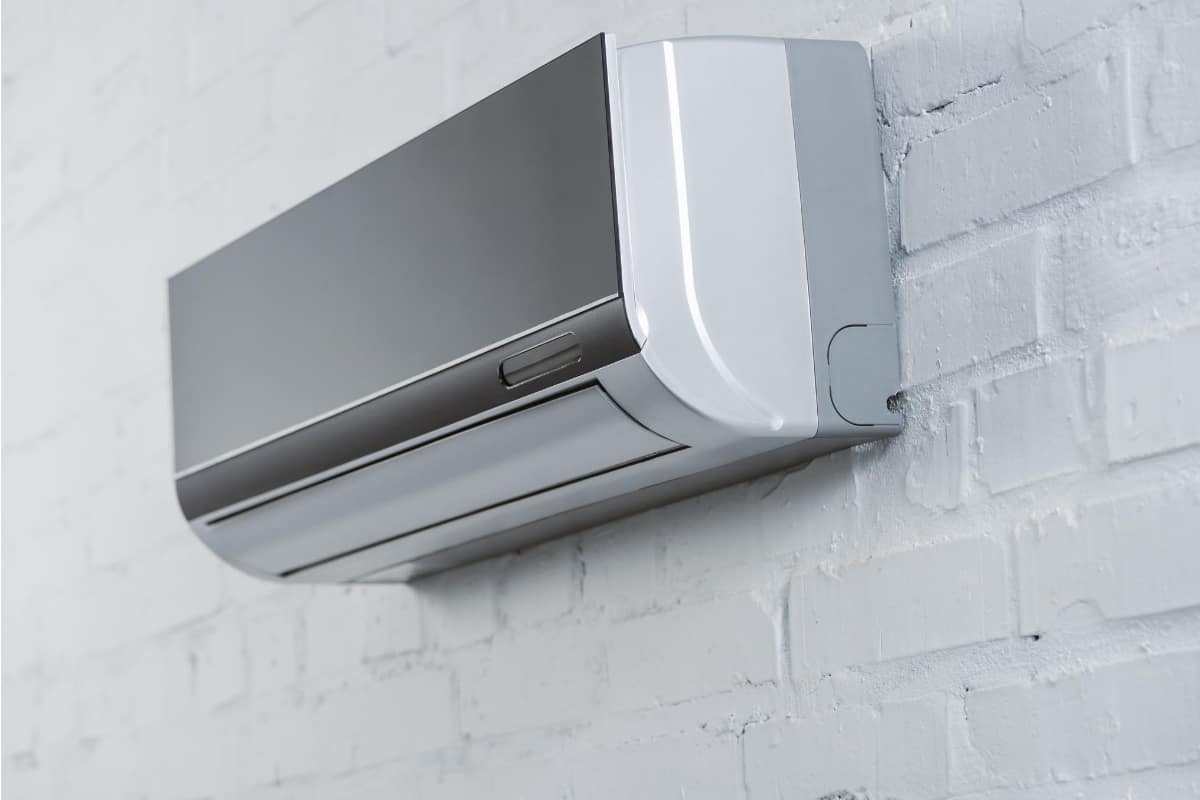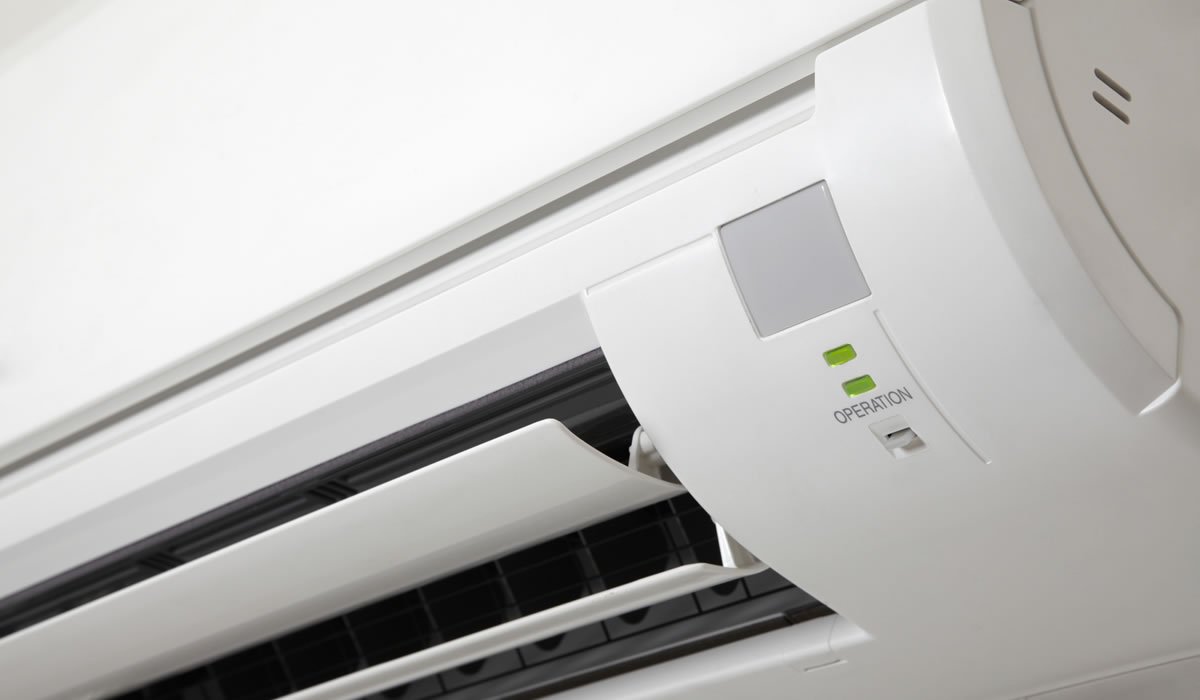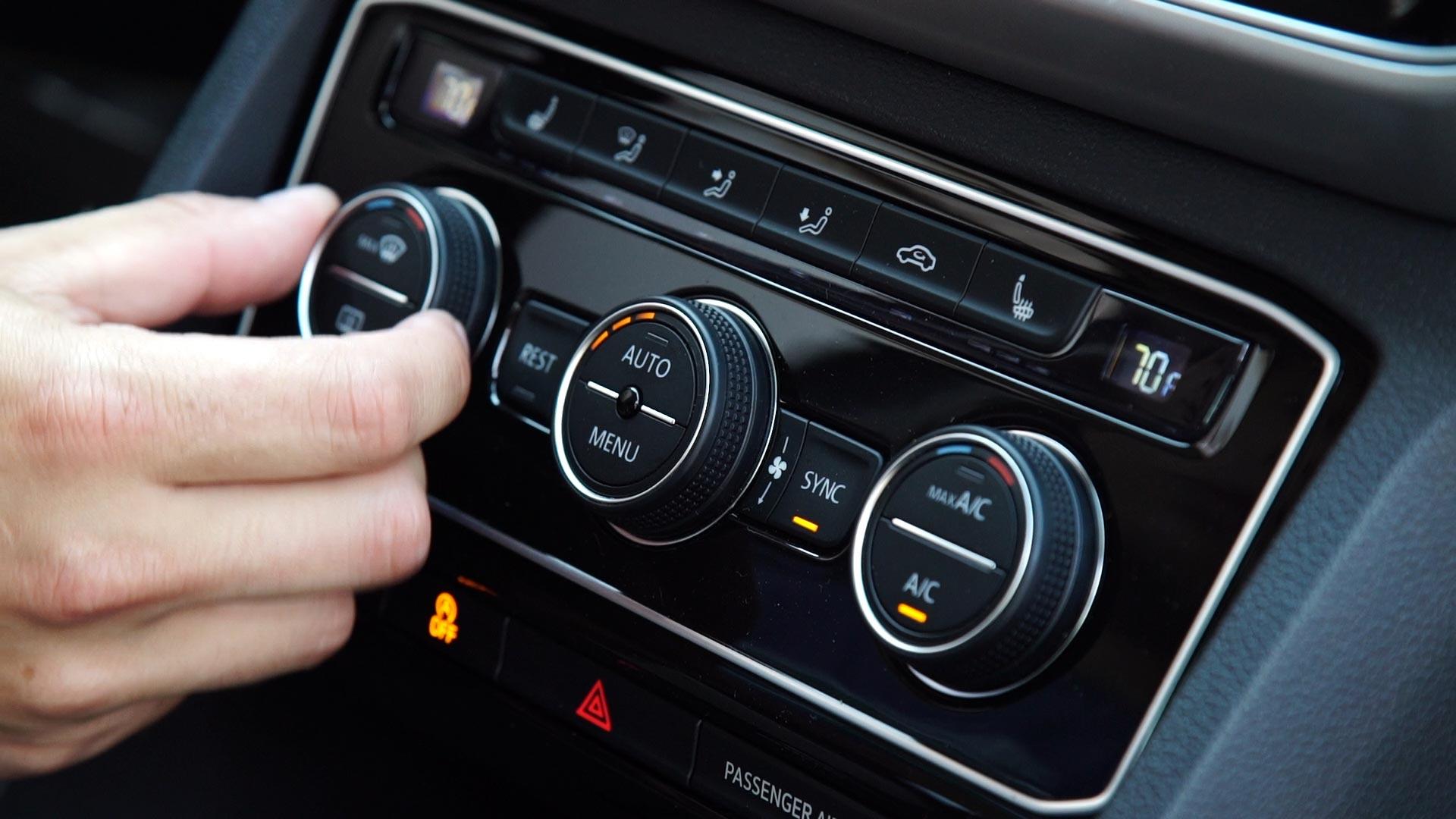Home>Home Maintenance>Why Is My Air Conditioner Squeaking
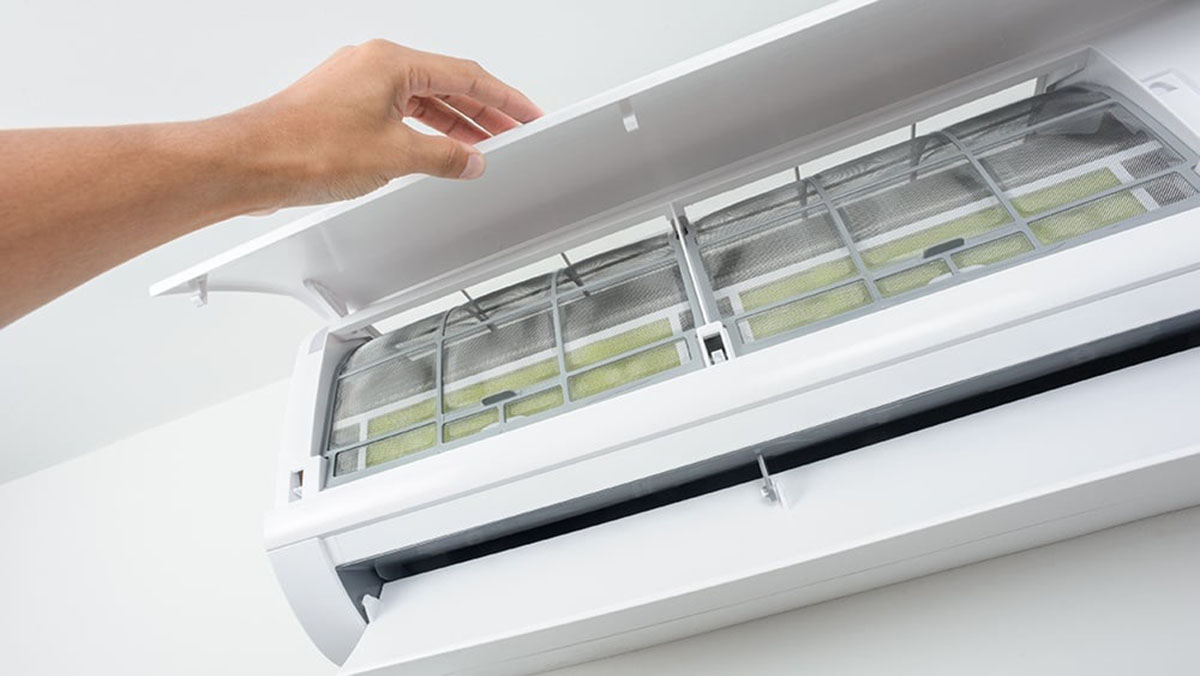

Home Maintenance
Why Is My Air Conditioner Squeaking
Modified: August 25, 2024
Discover the reasons why your air conditioner is squeaking and how to fix it with our home maintenance tips. Keep your home cool and comfortable all summer long.
(Many of the links in this article redirect to a specific reviewed product. Your purchase of these products through affiliate links helps to generate commission for Storables.com, at no extra cost. Learn more)
Introduction
Having a well-functioning air conditioner is essential for maintaining a comfortable home environment, especially during hot summer months. However, one of the most common issues that homeowners face with their air conditioning systems is an annoying squeaking sound. This noise can be quite disruptive and frustrating, not to mention a sign that something may be wrong with the unit.
In this article, we will explore the common causes of air conditioner squeaking and provide you with some tips on how to fix this problem. By understanding the underlying issues and taking appropriate action, you can restore the smooth and quiet operation of your air conditioning system.
Key Takeaways:
- Regularly lubricate and clean your air conditioner’s moving parts to prevent squeaking. If the noise persists, seek professional help to diagnose and fix the issue.
- Inspect and tighten fan belts, clean components, and clear blockages to eliminate air conditioner squeaking. Professional assistance may be needed for complex problems.
Read more: Why Is My Air Conditioner Surging
Common Causes of Air Conditioner Squeaking
When your air conditioner starts squeaking, there could be several reasons behind this annoying noise. Here are some common causes to be aware of:
- Lack of Lubrication: Air conditioners have various moving parts that require regular lubrication to reduce friction and noise. Over time, the lack of lubrication can cause parts to grind against each other, leading to squeaking sounds.
- Loose or Damaged Fan Belt: The fan belt is responsible for rotating the fan blades, which in turn circulates the air. If the fan belt is loose or damaged, it can start to slip or make a squeaking noise as it rotates.
- Faulty Motor: The motor is a crucial component of the air conditioner, as it powers the entire system. If the motor is faulty or experiencing issues, it can generate squeaking sounds as it struggles to function properly.
- Dirty or Blocked Components: Dust, debris, and other particles can accumulate on the various components of your air conditioner, such as the fan blades or motor. These accumulations can interfere with the smooth operation of the unit, resulting in squeaking noises.
- Loose or Misaligned Parts: With regular use, certain parts of your air conditioner may become loose or misaligned. This can cause them to vibrate and create a squeaking sound. Common culprits include the fan blades, housing, or mounting brackets.
Identifying the specific cause of the squeaking noise is essential for effective troubleshooting and resolution. By understanding these common causes, you can now move on to addressing the issue and preventing further damage to your air conditioner.
Lack of Lubrication
One of the most common reasons why an air conditioner starts squeaking is due to a lack of lubrication. Your air conditioner is equipped with various moving parts, such as bearings and pulleys, that require lubrication to function smoothly. Over time, however, the lubricant can degrade or evaporate, leading to increased friction between the moving parts. This friction can result in squeaking or squealing noises.
To address this issue, it is important to regularly lubricate the moving parts of your air conditioner. Start by turning off the power to the unit and accessing the necessary components. Consult your air conditioner’s manual to locate the specific parts that require lubrication.
Using a lubricant such as oil or grease, apply a small amount to the designated areas. Be sure not to over-lubricate, as this can lead to other problems. Follow the manufacturer’s recommendations on the type and amount of lubricant to use.
Once you have applied the lubricant, manually rotate the parts to ensure even distribution. This will help to reduce friction and eliminate the squeaking noise. Remember to wipe off any excess lubricant to prevent accumulation and improve the overall performance of your air conditioner.
Regular maintenance is key to preventing a lack of lubrication. Make it a habit to inspect and lubricate the moving parts of your air conditioner at least once a year. This will ensure optimal performance and help to extend the lifespan of your unit.
If you are unsure about how to lubricate the moving parts or if the squeaking noise persists after lubrication, it is advisable to seek professional assistance. An HVAC technician can inspect your air conditioner, diagnose the issue, and provide the necessary repairs or replacements.
Loose or Damaged Fan Belt
If your air conditioner is producing a squeaking noise, one possible culprit could be a loose or damaged fan belt. The fan belt is responsible for connecting the motor to the fan blades and ensuring their smooth rotation. Over time, the fan belt can become loose or worn out, leading to slipping or squeaking sounds.
To determine if the fan belt is the cause of the squeaking noise, you can visually inspect it. Start by turning off the power to the air conditioner and carefully remove the cover or access panel to expose the belt. Check for any signs of wear, cracks, or looseness. If you notice any damage or if the belt feels loose, it may need to be tightened or replaced.
Tightening the fan belt is a relatively simple task that can be done with the appropriate tools. Refer to your air conditioner’s manual or consult a professional technician for specific instructions on how to adjust the tension of the fan belt properly. It is crucial not to overtighten the belt, as this can put strain on the motor and cause further issues.
If the fan belt is severely damaged or worn out, replacement may be necessary. Contact a reputable HVAC technician to assist you in selecting the correct replacement belt and properly installing it. They will have the expertise and knowledge to ensure that the new belt is installed correctly and tensioned properly.
Regular maintenance is key to preventing a loose or damaged fan belt. Inspect the belt regularly for signs of wear and tear, and make sure to tighten any loose belts immediately. Additionally, keeping the air conditioner clean and free from debris can help prevent premature belt damage.
If you are uncertain about how to inspect or tighten the fan belt, or if the squeaking noise persists even after adjustments, it is advisable to seek professional help. A qualified technician can diagnose the issue and provide the necessary repairs or replacements to restore the smooth and quiet operation of your air conditioner.
Faulty Motor
If your air conditioner is emitting a squeaking noise, one potential cause could be a faulty motor. The motor plays a crucial role in powering the entire air conditioning system, and if it is experiencing issues, it can generate unpleasant sounds as it struggles to function properly.
There are several reasons why a motor may become faulty. Over time, wear and tear can cause the motor’s internal components to degrade, resulting in abnormal sounds. Additionally, electrical issues, such as loose or worn out wiring, can contribute to motor problems.
To determine if the motor is causing the squeaking noise, it is best to consult a professional HVAC technician. They have the expertise and tools to inspect the motor and identify any underlying issues. They may need to disassemble specific parts of the air conditioner to access the motor for a thorough examination.
If a faulty motor is indeed the source of the squeaking noise, repairs or replacements may be necessary. The technician will assess the extent of the damage and provide you with suitable options. In some cases, minor repairs or adjustments may be sufficient to resolve the issue. However, if the motor is severely damaged, a complete replacement may be required.
Regular maintenance and care can help prolong the lifespan of the motor and prevent premature failures. Follow the manufacturer’s guidelines for routine maintenance tasks, such as cleaning and inspecting the motor. Additionally, ensure proper airflow around the motor by keeping the air conditioner free from obstructions and debris.
If you suspect a faulty motor but are uncertain, it is always recommended to seek professional assistance. Attempting to diagnose or repair motor issues without the necessary expertise can lead to further damage or safety hazards. A qualified technician will have the knowledge and skills to address the problem effectively and restore the smooth and quiet operation of your air conditioner.
Read more: Why Is There Ice On My Air Conditioner
Dirty or Blocked Components
If your air conditioner is emitting a squeaking noise, it could be due to dirty or blocked components within the unit. Over time, dust, dirt, and other particles can accumulate on various parts of the air conditioner, such as the fan blades or motor. These build-ups can interfere with the smooth operation of the unit, resulting in squeaking or grinding noises.
To address this issue, start by shutting off the power to the air conditioner to ensure your safety. Carefully remove the access panels or covers to gain access to the internal components. Inspect the fan blades, motor, and other visible parts for any signs of dirt or debris.
If you notice any build-up, it is essential to clean the components thoroughly. Use a soft brush or a cloth to gently remove dust and dirt from the fan blades, ensuring that you do not bend or damage them. For harder-to-reach areas, you can use a vacuum cleaner to suck up the debris.
In addition to the visible components, it is crucial to clean or replace the air filters regularly. Dirty filters can restrict airflow, causing the air conditioner to work harder and potentially lead to squeaking noises. Follow the manufacturer’s guidelines on how often to clean or replace the filters to ensure optimal performance.
Once you have cleaned the components and replaced the filters if necessary, reassemble the air conditioner and turn on the power. Check for any remaining squeaking noises. It is essential to note that if the squeaking persists after cleaning, there may be other underlying issues that require professional attention.
Regular maintenance is key to preventing the accumulation of dirt and debris in your air conditioner. Make it a habit to clean the components and replace the filters periodically. Additionally, ensure that the area around the air conditioner is clear of obstructions, such as plants or outdoor furniture, to allow for proper airflow.
If you are unsure about how to clean the components or if the squeaking noise continues, it is recommended to consult a professional HVAC technician. They can inspect your air conditioner, identify any underlying problems, and provide the necessary repairs or maintenance to restore smooth and quiet operation.
Loose or Misaligned Parts
If your air conditioner is emitting a squeaking noise, one possible cause could be loose or misaligned parts. With regular use, certain components of your air conditioner may become loose or shift out of alignment, leading to vibrations and, subsequently, squeaking sounds.
To address this issue, start by turning off the power to the air conditioner. Carefully inspect the unit, paying close attention to the fan blades, housing, and mounting brackets. Look for any visible signs of looseness or misalignment.
If you identify any loose parts, you can attempt to tighten them with the appropriate tools. However, it is important to exercise caution and consult your air conditioner’s manual for guidance, as improper handling can cause further damage. Use the recommended torque specifications to ensure proper tightening without overtightening.
In some cases, parts may be misaligned rather than loose. If you notice that certain components are not in their correct positions, you may need to make adjustments to realign them. Again, refer to your air conditioner’s manual for instructions on how to properly align the specific parts.
Keep in mind that not all parts are easily accessible or adjustable by homeowners. In such cases, it is best to seek the assistance of a professional HVAC technician. They have the knowledge and expertise to identify and address loose or misaligned parts efficiently and effectively.
Regular maintenance is crucial for preventing loose or misaligned parts. Inspect your air conditioner periodically and tighten any loose components immediately. Additionally, ensure that the unit is installed and mounted correctly to minimize the risk of parts becoming misaligned over time.
If you have tightened or adjusted the parts, but the squeaking noise persists, it may indicate an underlying issue or a more complex problem. In such cases, it is advisable to contact a professional technician who can thoroughly inspect your air conditioner and provide the necessary repairs or adjustments.
Regular maintenance and cleaning of your air conditioner can help prevent squeaking. Check for loose parts, lubricate moving components, and replace worn-out belts or bearings to keep your AC running smoothly.
How to Fix Air Conditioner Squeaking
If your air conditioner is squeaking, it is essential to address the issue promptly to restore its smooth and quiet operation. Here are some steps you can take to fix the squeaking noise:
- Lubricating the Moving Parts: Lack of lubrication can cause friction between the moving parts of your air conditioner, leading to squeaking sounds. Regularly lubricate the designated components with the appropriate lubricant, following the manufacturer’s recommendations.
- Tightening or Replacing the Fan Belt: A loose or damaged fan belt can result in slipping or squeaking noises. Inspect the fan belt and tighten it if necessary, following the manufacturer’s guidelines. If the belt is severely damaged, replace it with a new one.
- Repairing or Replacing the Motor: If the motor is faulty, it may produce squeaking noises. Consult a professional HVAC technician to inspect the motor and determine if repairs or replacements are required.
- Cleaning and Clearing Blockages: Dust, dirt, and debris can accumulate on the components of your air conditioner, causing it to squeak. Clean the fan blades, motor, and other visible parts to remove any build-up. Also, regularly clean or replace the air filters to ensure proper airflow.
- Adjusting or Tightening Loose Parts: Over time, certain parts of your air conditioner may become loose or misaligned, resulting in vibrations and squeaking noises. Inspect the unit and tighten any loose parts. If necessary, make adjustments to ensure proper alignment.
It is important to note that while these steps can help resolve certain common issues, some problems may require professional assistance. If you are unsure about how to proceed or the squeaking noise persists, it is advisable to seek the help of a qualified HVAC technician. They have the expertise and knowledge to diagnose and fix more complex issues safely.
Additionally, regular maintenance and care can help prevent air conditioner squeaking in the first place. Schedule yearly inspections, cleanings, and tune-ups to keep your unit in optimal condition. Follow the manufacturer’s guidelines for maintenance tasks and ensure proper airflow around the air conditioner.
By taking these steps and addressing the underlying causes of air conditioner squeaking, you can enjoy a quiet and efficient cooling system that keeps your home comfortable year-round.
Lubricating the Moving Parts
Lack of lubrication is a common cause of air conditioner squeaking. The moving parts of your air conditioner, such as bearings, pulleys, and motors, require regular lubrication to reduce friction and prevent squeaking noises. Over time, the lubricant can break down or evaporate, leading to increased friction between the components.
To address this issue, you can perform the following steps to lubricate the moving parts of your air conditioner:
- Turn off the power: Before beginning any maintenance work on your air conditioner, ensure that the power is turned off. This will prevent any potential accidents or injuries.
- Locate the lubrication points: Refer to your air conditioner’s manual to identify the specific parts that require lubrication. Common lubrication points include bearings, pulleys, and any other moving components.
- Clean the components: Before applying lubricant, clean the components to ensure they are free from dust, dirt, and debris. Use a soft cloth or brush to gently remove any accumulated particles.
- Select the appropriate lubricant: Consult the manufacturer’s recommendations to determine the correct type of lubricant for your air conditioner. Common options include oil or grease. Make sure that the lubricant is compatible with the specific components of your unit.
- Apply the lubricant: Using a small amount of lubricant, apply it to the designated areas. Be careful not to over-lubricate, as this can lead to other issues. Follow the manufacturer’s instructions for the appropriate amount and method of application.
- Distribute the lubricant: Once the lubricant is applied, manually rotate the moving parts to ensure even distribution. This will help to reduce friction and eliminate the squeaking noise.
- Remove excess lubricant: Wipe off any excess lubricant to prevent accumulation and improve the overall performance of your air conditioner. Excess lubricant can attract dust and debris, leading to potential clogs or issues.
Performing regular maintenance on your air conditioner is crucial for preventing squeaking due to lack of lubrication. It is recommended to lubricate the moving parts at least once a year. However, consult your air conditioner’s manual for specific guidelines as recommended intervals may vary.
If you are uncertain about how to lubricate the moving parts or if the squeaking noise persists after lubrication, it is advisable to consult a professional HVAC technician. They can inspect your air conditioner, diagnose any underlying issues, and ensure that the lubrication process is done correctly.
By regularly lubricating the moving parts of your air conditioner, you can minimize friction and eliminate annoying squeaking noises, helping to maintain a smoothly functioning and efficient cooling system.
Read more: Why Is My Air Conditioner Not Turning On
Tightening or Replacing the Fan Belt
If your air conditioner is emitting a squeaking noise, one possible cause is a loose or damaged fan belt. The fan belt is responsible for connecting the motor to the fan blades, ensuring their smooth rotation. Over time, the fan belt can become loose or worn out, leading to slipping or squeaking sounds.
To address this issue, you can follow these steps to tighten or replace the fan belt:
- Turn off the power: Before working on your air conditioner, ensure that the power is turned off to prevent any potential accidents.
- Access the fan belt: Locate the fan belt, which is usually found near the motor and fan assembly. Remove any access panels or covers necessary to gain access to the belt.
- Inspect the fan belt: Visually inspect the fan belt for any signs of wear, cracks, or looseness. If the belt appears damaged or feels loose, it may need to be tightened or replaced.
- Tightening the fan belt: If the fan belt is loose but in good condition, you can attempt to tighten it. Locate the tension adjustment mechanism, which is typically a bolt or sliding bracket. Follow the manufacturer’s guidelines to adjust the tension, ensuring that the belt is tight enough to prevent slipping but not overly tight.
- Replacing the fan belt: If the fan belt is severely damaged or worn out, replacement may be necessary. Contact a reputable HVAC technician or refer to your air conditioner’s manual for the correct replacement belt size and type. Follow the manufacturer’s instructions to install the new belt, ensuring proper alignment and tension.
- Testing the fan belt: After tightening or replacing the fan belt, reassemble the air conditioner components and turn on the power. Listen for any remaining squeaking noises. The fan belt should now be properly tensioned and functioning smoothly.
Regular maintenance is essential for preventing loose or damaged fan belts. Inspect the fan belt periodically for signs of wear and tighten it as needed. Additionally, keep the area around the air conditioner free from obstructions to prevent strain on the belt.
If you are unsure about how to tighten or replace the fan belt, or if the squeaking noise persists after adjustments, it is advisable to seek the assistance of a professional HVAC technician. They have the expertise and knowledge to diagnose and resolve fan belt issues effectively and safely.
By addressing a loose or damaged fan belt promptly, you can eliminate the squeaking noise and ensure the smooth operation of your air conditioner.
Repairing or Replacing the Motor
If your air conditioner is producing a squeaking noise, one potential cause could be a faulty motor. The motor is a critical component that powers the entire air conditioning system, and if it is experiencing issues, it can generate unpleasant sounds as it struggles to function properly.
Here are the steps to consider when repairing or replacing the motor:
- Turn off the power: Ensure that the power to the air conditioner is turned off before attempting any maintenance or repairs.
- Consult a professional: If you suspect a faulty motor, it is advisable to consult a professional HVAC technician. They have the expertise and knowledge to diagnose motor issues accurately.
- Inspection and diagnosis: The technician will inspect the motor to determine the extent of the damage and identify the underlying cause of the squeaking noise. They may need to disassemble certain components to access and thoroughly assess the motor.
- Options for repair or replacement: Based on the inspection, the technician will provide you with suitable options for repair or replacement. In some cases, minor repairs or adjustments may resolve the issue. However, if the motor is severely damaged or beyond repair, a complete replacement may be necessary.
- Professional repair or replacement: If repairs are required, the technician will proceed with the necessary fixes using the appropriate tools and replacement parts. If a replacement motor is necessary, they will ensure that it is compatible with your air conditioner and properly installed.
- Ongoing maintenance: After the motor has been repaired or replaced, it is essential to follow the manufacturer’s recommendations for regular maintenance. This includes cleaning, lubricating, and inspecting the motor periodically to prevent future issues and extend its lifespan.
Attempting to repair or replace a motor without the necessary expertise can lead to further damage or safety hazards. It is best to rely on a qualified HVAC technician to handle motor-related issues to ensure proper diagnosis and repair.
Regular maintenance is crucial for preventing motor problems. Follow the manufacturer’s guidelines for routine maintenance tasks and keep the air conditioner clean and free from debris. Maintaining a clean and properly functioning motor will help minimize the risk of future squeaking noises and enhance the overall performance of your air conditioner.
By consulting a professional and addressing motor issues promptly, you can effectively resolve the squeaking noise and restore the smooth operation of your air conditioner.
Cleaning and Clearing Blockages
If your air conditioner is producing a squeaking noise, it may be due to dirty or blocked components within the unit. Dust, dirt, and other particles can accumulate on various parts of the air conditioner over time, such as the fan blades, motor, and air filters. These build-ups can interfere with the smooth operation of the unit, resulting in squeaking or grinding noises.
To address this issue, follow these steps to clean and clear any blockages in your air conditioner:
- Turn off the power: Before performing any maintenance on your air conditioner, ensure that the power is turned off to avoid any potential accidents.
- Access the components: Locate the access panels or covers and remove them to gain access to the internal components of the air conditioner.
- Inspect for dirt and debris: Carefully examine the fan blades, motor, and other visible parts for any signs of dirt or debris accumulation. Use a flashlight if needed to get a better view of the components.
- Clean the fan blades: Dust and dirt on the fan blades can cause imbalance and generate squeaking noises. Use a soft brush or cloth to gently remove any accumulated dirt. Be cautious not to bend or damage the blades.
- Clean the motor: Use a soft brush or cloth to gently clean the motor housing and fins, removing any dust or debris. Take care not to apply excessive force or get any cleaning agents on electrical components.
- Clean or replace the air filters: Dirty air filters can restrict airflow and lead to squeaking noises. Remove the air filters and clean them according to the manufacturer’s instructions. If the filters are non-reusable or severely worn out, it is advisable to replace them with new ones.
- Clear blockages: Use a vacuum cleaner or a brush to remove any debris or blockages from the air conditioner’s vents, coils, and condensate drains. Be thorough in clearing any clogs or obstructions that may impede the airflow.
- Reassemble and power on: Once all the components are clean and clear, reassemble the air conditioner and turn on the power. Listen for any remaining squeaking noises to ensure that the cleaning and clearing have resolved the issue.
Performing regular maintenance and cleaning on your air conditioner is key to preventing blockages and keeping it in optimal condition. Follow the manufacturer’s guidelines for cleaning frequency and filter replacements to maintain proper airflow and prevent future squeaking noises.
If you are uncertain about how to clean certain components or if the squeaking noise persists after cleaning, it may be advisable to consult a professional HVAC technician. They have the expertise to thoroughly inspect and clean your air conditioner, ensuring that any underlying issues are addressed appropriately.
By cleaning and clearing blockages in your air conditioner, you can eliminate squeaking noises and help maintain efficient and smooth operation.
Adjusting or Tightening Loose Parts
If your air conditioner is emitting a squeaking noise, it could be due to loose or misaligned parts. Regular use of your air conditioner may cause certain components to become loose or shift out of alignment over time, leading to vibrations and, subsequently, squeaking sounds.
To address this issue, follow these steps to adjust or tighten loose parts:
- Turn off the power: Before starting any maintenance or repairs, make sure to turn off the power to your air conditioner to avoid any potential accidents.
- Inspect the unit: Carefully inspect your air conditioner, paying close attention to the fan blades, housing, and mounting brackets. Look for any visible signs of looseness or misalignment.
- Tighten the loose parts: If you identify any loose parts, you can attempt to tighten them using the appropriate tools. Consult your air conditioner’s manual for guidance on how to properly tighten the specific parts. It is crucial not to overtighten, as this can cause damage or put unnecessary strain on the components.
- Make adjustments for misaligned parts: In some cases, parts may be out of alignment rather than loose. If you notice that certain components are not in their correct positions, you may need to make adjustments to realign them. Refer to your air conditioner’s manual or consult a professional technician for instructions on how to properly align the specific parts.
- Test for squeaking noise: After tightening or adjusting the loose or misaligned parts, reassemble the air conditioner and turn on the power. Listen for any remaining squeaking noises. The adjustments should have resolved the issue and eliminated the squeaking sounds.
Regular maintenance is crucial for preventing loose or misaligned parts. Inspect your air conditioner periodically and tighten any loose components immediately. Additionally, ensure that the unit is installed and mounted correctly to minimize the risk of parts becoming misaligned over time.
If you are unsure about how to tighten or adjust the parts, or if the squeaking noise persists even after adjustments, it is advisable to seek the assistance of a professional HVAC technician. They have the knowledge and expertise to diagnose and address loose or misaligned parts effectively and safely.
By taking the necessary steps to adjust or tighten loose parts, you can eliminate squeaking noises and ensure the smooth and quiet operation of your air conditioner.
Read more: Why Is My Air Conditioner Crackling
Conclusion
Squeaking noises from your air conditioner can be disruptive and frustrating. Fortunately, by understanding the common causes and taking appropriate action, you can eliminate these noises and restore the smooth and quiet operation of your cooling system.
In this article, we explored the common causes of air conditioner squeaking, including lack of lubrication, loose or damaged fan belts, faulty motors, dirty or blocked components, and loose or misaligned parts. We discussed various steps to address each issue, such as lubricating the moving parts, tightening or replacing fan belts, repairing or replacing motors, cleaning and clearing blockages, and adjusting or tightening loose parts.
Regular maintenance is crucial for preventing air conditioner squeaking and ensuring optimal performance. It is important to lubricate the moving parts, inspect and tighten fan belts, clean the components and air filters, and keep the unit free from debris. Additionally, professional assistance may be necessary for more complex issues or if you are unsure about how to proceed.
By addressing air conditioner squeaking promptly and effectively, you can enjoy a quiet and efficient cooling system that provides comfort in your home. Remember to follow the manufacturer’s guidelines, consult professional technicians when needed, and perform regular maintenance to keep your air conditioner running smoothly for years to come.
Now armed with the knowledge and steps to fix the squeaking noise, you can take action and ensure a cool and serene living environment. Don’t let the squeaks get you down – take control and enjoy the comfort of your home without any disturbances from your air conditioner!
Frequently Asked Questions about Why Is My Air Conditioner Squeaking
Was this page helpful?
At Storables.com, we guarantee accurate and reliable information. Our content, validated by Expert Board Contributors, is crafted following stringent Editorial Policies. We're committed to providing you with well-researched, expert-backed insights for all your informational needs.
